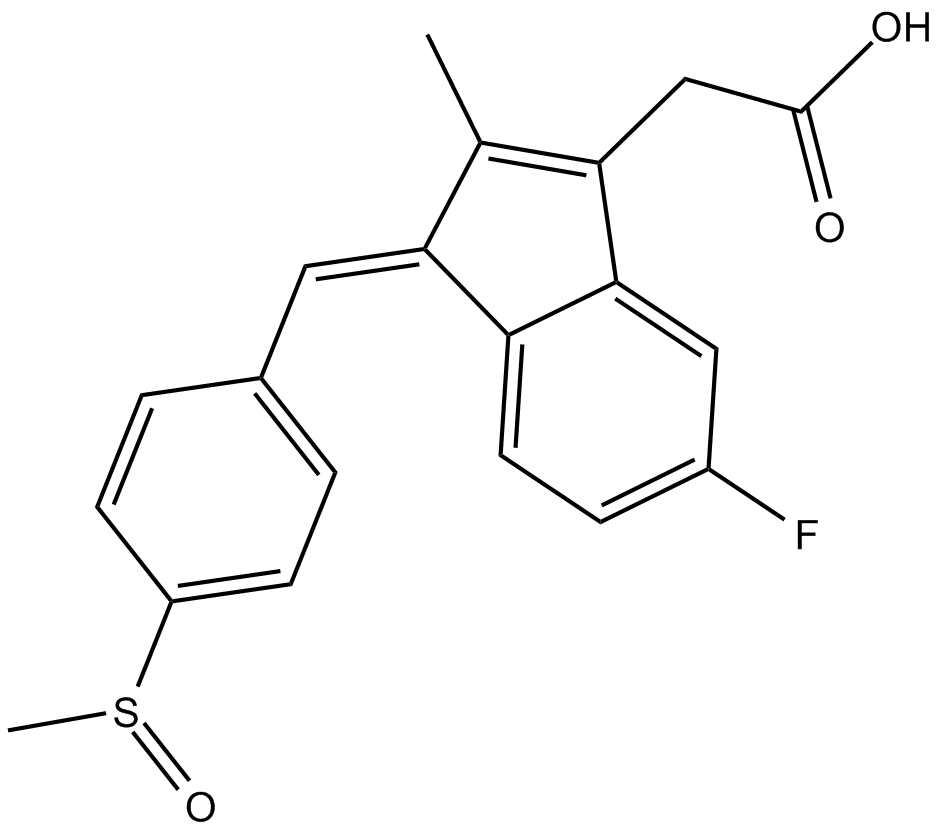Sulindac |
| Catalog No.GC16716 |
Anti-inflammatory agent;COX inhibitor
Products are for research use only. Not for human use. We do not sell to patients.

Cas No.: 38194-50-2
Sample solution is provided at 25 µL, 10mM.
Sulindac (MK-231) is a non-steroidal antiinflammatory agent, acts as a COX-2 inhibitor, and inhibits overexpression of COX-2.
Sulindac (MK-231) is a non-steroidal antiinflammatory agent, acts as a COX-2 inhibitor, and inhibits overexpression of COX-2[1]. Sulindac (MK-231) (0.1 mM to 0.5 mM) causes limited death in both p53 wt and p53 null HCT116 cells, but in combination with vitamin C, it dramatically increases almost 5-fold in cell death in p53 wt HCT116 cells relative to the vitamin C alone, and such an effect is involving caspase activation and p53 function in these cells, and via ROS-mediated pathway. Sulindac combined with vitamin C significantly increases PUMA levels, but shows no effect on Bim, Bcl-2 and Mcl-1 levels[2]. Sulindac (MK-231) (500 μM) in combination with celecoxib blocks transforming growth factor (TGF)-β1-induced epithelial-mesenchymal transition, migration and invasion in A549 cells. The combination also suppresses involvement of sirtuin 1 (SIRT1) in transforming growth factor (TGF)-β1-induced epithelial-mesenchymal transition (EMT)[3].
Sulindac (MK-231) (0.5 ± 0.1 mg/day) decreases COX, modolates PGE2 levels and prevents tumor formation in the Min mice[1].
References:
[1]. Boolbol SK, et al. Cyclooxygenase-2 overexpression and tumor formation are blocked by sulindac in a murine model of familial adenomatous polyposis. Cancer Res. 1996 Jun 1;56(11):2556-60.
[2]. Gong EY, et al. Combined treatment with vitamin C and sulindac synergistically induces p53- and ROS-dependent apoptosis in human colon cancer cells. Toxicol Lett. 2016 Sep 6;258:126-133.
[3]. Cha BK, et al. Celecoxib and sulindac inhibit TGF-β1-induced epithelial-mesenchymal transition and suppress lung cancer migration and invasion via downregulation of sirtuin 1. Oncotarget. 2016 Aug 30;7(35):57213-57227.
Average Rating: 5 (Based on Reviews and 4 reference(s) in Google Scholar.)
GLPBIO products are for RESEARCH USE ONLY. Please make sure your review or question is research based.
Required fields are marked with *




















